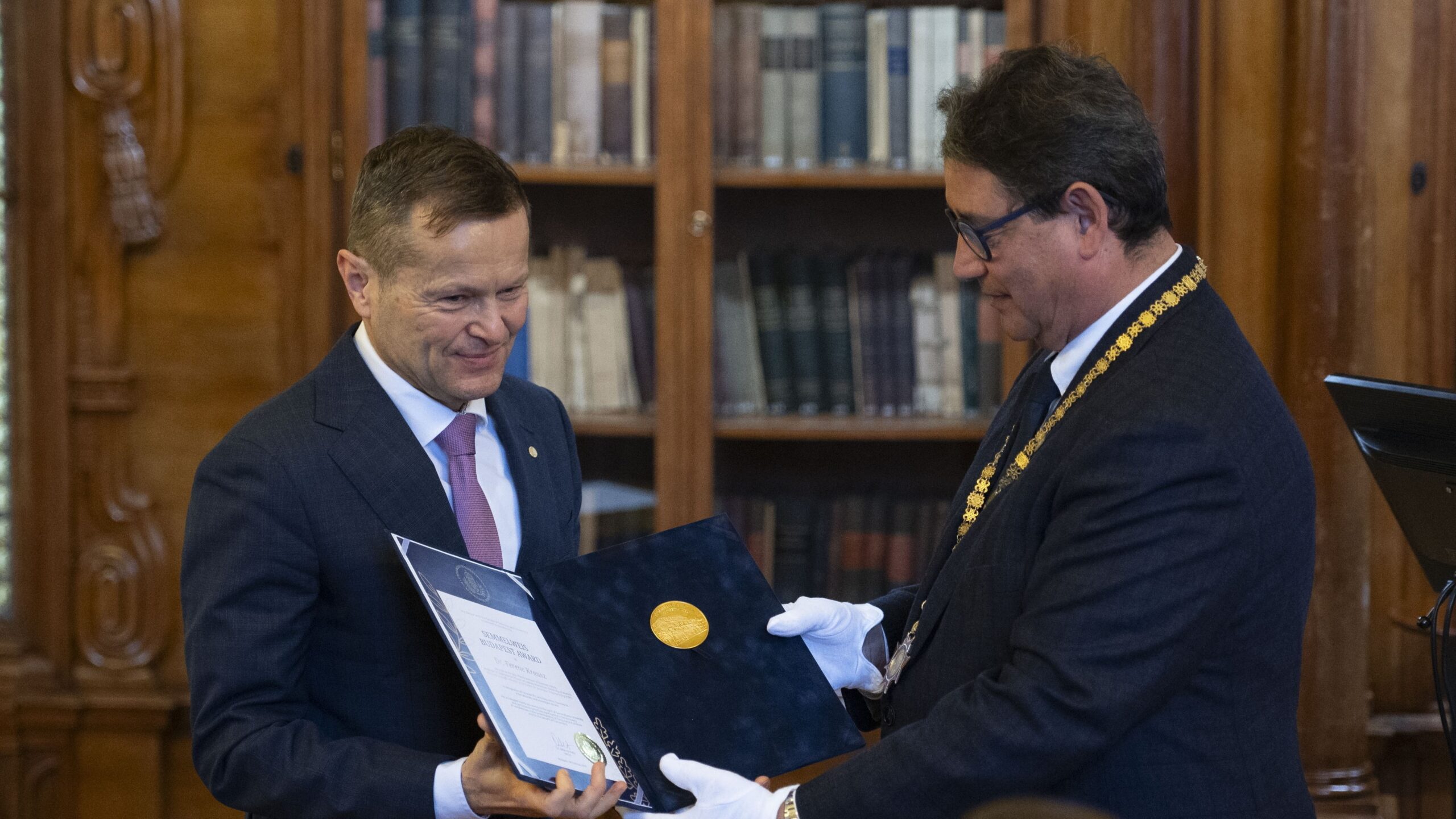Renowned physicist and Nobel laureate Ferenc Krausz has been honoured with the Semmelweis Budapest Award, a prestigious recognition granted to scientists whose groundbreaking work serves humanity’s progress. The award was presented by Rector of Semmelweis University Béla Merkely during a ceremony in Budapest.
Upon receiving the accolade, Krausz expressed his commitment to advancing personalized, preventive medicine, stating that the recognition serves as a driving force for him and his research team to further their efforts. His pioneering work in infrared molecular fingerprinting holds great promise for early disease detection, though he acknowledged that significant progress is still required before it can be widely implemented in medical practice.
The award, established in 2009, has been previously given to distinguished researchers, including four Nobel laureates. Alongside Katalin Karikó, Krausz now joins the ranks of Hungarian scientists who have made remarkable contributions to life sciences. In recent years, the prize has also been awarded to Hungarian researchers such as Péter Gloviczki, Botond Roska, and Balázs Gulyás, reinforcing the country’s strong presence in international scientific innovation.
Rector Béla Merkely praised Krausz not only for his scientific achievements but also for his dedication to humanitarian causes. He highlighted Krausz’s ability to unite people for meaningful purposes, whether in the pursuit of scientific discovery or philanthropy. Notably, Krausz donated his 2023 Nobel Prize winnings to a charity supporting the education of children affected by the war in Ukraine.
The ceremony featured a lecture by Krausz titled ‘Laser Pulses in the Service of Medicine’, delivered in English. The event also included a laudation by Vice Rector for Science and Innovations at Semmelweis University Professor Péter Ferdinandy, who detailed Krausz’s scientific journey. Ferdinandy highlighted Krausz’s shared Nobel Prize with Pierre Agostini and Anne L’Huillier for their work on attosecond light pulses, which have provided unprecedented insights into electron dynamics within atoms.
Semmelweis University, which has collaborated with Krausz for years, plays a vital role in supporting his research through the Molecular Fingerprinting Research Centre (CMF) and the Neumann János Data Science Institute. Their joint efforts focus on developing a simple blood test capable of detecting diseases in their early stages and identifying personalized treatment options.
Speaking after the event, Merkely stressed the significance of Krausz’s work in shaping the future of medical diagnostics. He emphasized that Hungary remains committed to fostering scientific excellence, particularly in fields that can directly improve human health. According to the rector, Krausz’s research could revolutionize the early detection and treatment of civilization-related diseases, contributing to a major shift in global healthcare.
Related articles:








